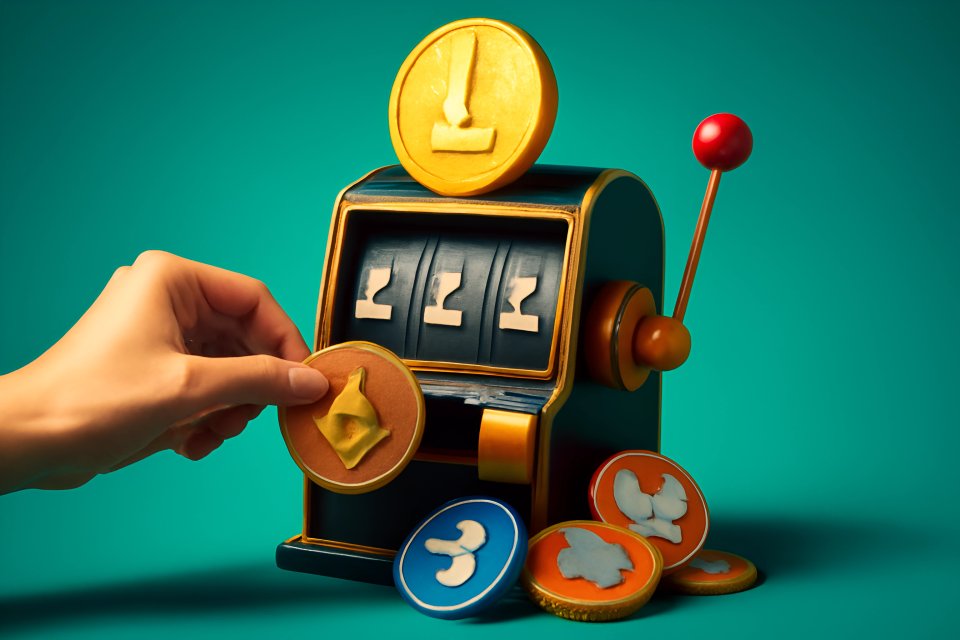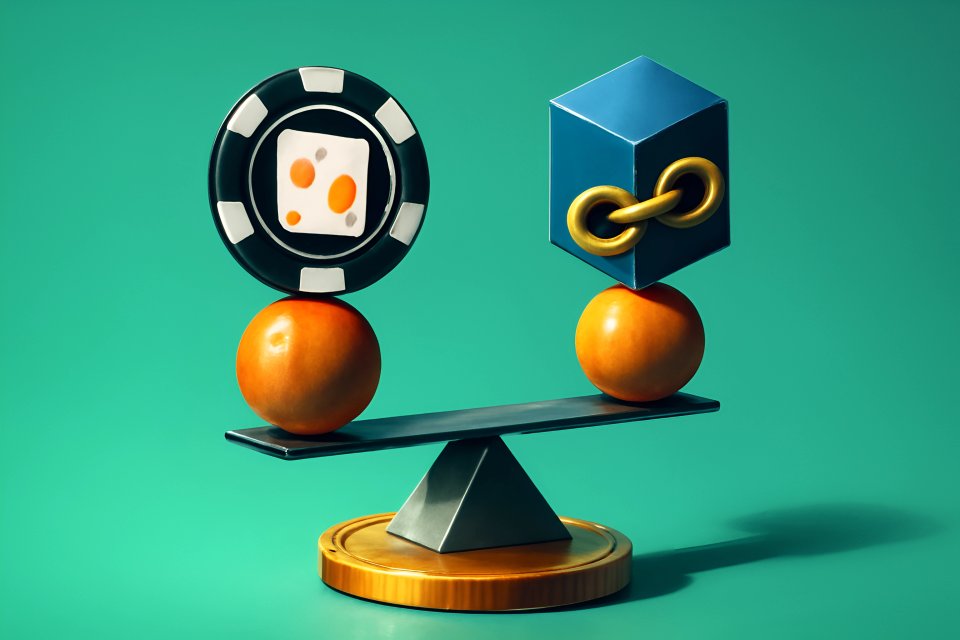
Ever stared at a spinning slot or a dealt hand in a crypto casino and felt that nagging question deep in your gut: "Is this really fair?" You're not alone. In a world built on digital trust and the promise of transparency, especially within the crypto sphere, knowing your game isn't rigged is paramount. It’s about your money, your time, and ultimately, your peace of mind.
The silent, unseen engine driving this fairness, or lack thereof, is the Random Number Generator (RNG). This technology is the absolute cornerstone of game integrity, the digital dealer ensuring every outcome is as unpredictable and unbiased as the flip of a perfectly balanced coin. Without a robust and verifiable RNG, the entire edifice of online gaming crumbles into suspicion and doubt.
For you, the savvy crypto casino player, understanding RNGs isn't just academic; it's empowering. The crypto ethos champions transparency and verifiability, and this extends to the very mechanics of the games you play. Knowing how in-game RNG crypto casinos operate builds not just trust, but also a sharper, more confident approach to your wagering. This knowledge transforms you from a passive participant into an informed player, secure in the knowledge that you're engaging with a system designed for genuine chance.
This article will rip the cover off the black box. We'll deliver a technical breakdown of RNG mechanisms, exploring how they generate the "randomness" that dictates wins and losses. We'll then dive into their specific application and the revolutionary advantages found in crypto casinos, particularly through Provably Fair systems that allow game verification. Finally, we'll equip you with practical steps to understand and, where possible, verify RNG fairness, targeting those of you who are technically inclined and rightly demand security and transparency in your gaming.
Defining Random Number Generators (RNGs)
So, what exactly is this mystical RNG? At its heart, a Random Number Generator is an algorithm or a physical device meticulously designed to produce a sequence of numbers or symbols that cannot be reasonably predicted any better than by pure random chance. Think of it as the ultimate digital dice roller or card shuffler. As G2A.com explains in their overview of RNGs in gaming, its purpose in any game, from video game loot drops to casino table outcomes, is to ensure that every single event – be it a spin, a card deal, or a dice roll – is independent and statistically random.
This isn't just a "nice-to-have" feature; it's the bedrock of legitimate gaming. The core function is to make sure that each outcome is a standalone event, uninfluenced by previous results and impervious to future prediction. This statistical randomness is what gives games their thrill and, more importantly, their integrity.
The implications are profound. Every time you hit "spin" on a slot machine or see the flop in a poker game, an RNG is working behind the scenes. It’s the mechanism that ensures the casino isn't simply deciding who wins or loses based on some hidden agenda.
Why RNGs are Non-Negotiable for Fair Gaming
Why is this digital shuffling so critical, especially when your hard-earned crypto is on the line? The primary reason RNGs are non-negotiable for fair gaming is to prevent predictability and manipulation. If outcomes could be guessed or influenced, the entire concept of a game of chance would be a sham, tilting the scales unfairly and destroying any semblance of trust.
Furthermore, RNGs are essential for ensuring that game outcomes align with their stated probabilities, such as the Return to Player (RTP) percentage in slot games. For instance, if a slot game claims a 96% RTP, a properly functioning RNG is what ensures, over a vast number of spins, that the game will indeed pay back approximately 96% of wagers. This adherence to statistical probabilities is a cornerstone of fair play in crypto gaming.
Ultimately, the RNG is the foundation of player trust in any online casino, a factor that's massively amplified in the crypto space where transparency and verifiability are core tenets. Players need the assurance that they are competing against mathematical odds, not a predetermined or manipulated sequence. This trust is what keeps players coming back, secure in the knowledge that they have a genuine shot at winning, a feeling that is crucial for both personal enjoyment and the casino's reputation.
Peeling Back the Layers: Types of RNGs
Not all random numbers are born equal. Delving into the technical nitty-gritty, we find two main families of RNGs, each with its own method of conjuring "randomness." Understanding these is key to appreciating how crypto casinos use RNG technology effectively.
Pseudo-Random Number Generators (PRNGs)
The most common type you'll encounter in online gaming, including many in-game RNG crypto casinos, are Pseudo-Random Number Generators, or PRNGs. These are algorithmic marvels. They don't generate true randomness but rather sequences of numbers that appear random and pass statistical tests for randomness. PRNGs work by taking an initial value, known as a "seed," and then applying a complex mathematical formula to produce a long sequence of numbers.
While deterministic (meaning if you know the seed and the algorithm, you can reproduce the sequence), the algorithms are designed to be computationally infeasible to predict without that crucial seed. Common algorithms include the Mersenne Twister, often referred to as MT19937, which is renowned for its incredibly long period of 219937-1, as detailed by Wikipedia's entry on the Mersenne Twister. PRNGs are widely used due to their efficiency and the ability to reproduce sequences for testing and debugging, which is vital for game developers.
The security of a PRNG heavily relies on the secrecy and quality of its seed. As G2A.com notes, PRNGs often use system time as a seed, which is one area where blockchain's transparent timestamps can offer enhancements.
True Random Number Generators (TRNGs / HRNGs - Hardware Random Number Generators)
Then we have True Random Number Generators (TRNGs), also known as Hardware Random Number Generators (HRNGs). These are the purists of the random world. Instead of relying on algorithms, TRNGs harness unpredictable physical phenomena to generate randomness. Think of things like atmospheric noise, radioactive decay, or even quantum events – processes that are inherently chaotic and unpredictable.
RANDOM.org is a prime example of a service using atmospheric noise to generate true random numbers, offering a level of randomness that algorithms can only aspire to emulate. These are often considered the "gold standard" for randomness because their output is, in theory, impossible to predict, even if you have all the information about how the generator works. However, TRNGs are generally more complex and expensive to implement and can sometimes be slower in generating numbers compared to PRNGs.
While some high-security applications and potentially some cutting-edge crypto casinos might employ TRNGs or hybrid systems, PRNGs remain prevalent in the broader gaming industry due to their practicality. The key is ensuring these PRNGs are robust, well-seeded, and, in the crypto world, often coupled with systems that allow for verification.
Key Characteristics of a Secure and Fair RNG
Whether a PRNG or a TRNG, what makes an RNG truly secure and fair? Several key characteristics are non-negotiable, and these are often scrutinized by bodies like the National Institute of Standards and Technology (NIST) in their guidelines for random number generation. First and foremost is unpredictability; future outputs must not be guessable from past outputs.
Secondly, non-repeatability, or a very long cycle length, is crucial. This means the sequence of numbers shouldn't repeat itself for an extremely long time, far beyond any practical gaming session. The Mersenne Twister, for example, boasts a period so vast it's astronomically unlikely to repeat in any conceivable timeframe.
Uniform distribution is another vital trait. This ensures that every number within the possible range has an equal chance of being generated. Finally, resistance to tampering is paramount; the RNG must be protected from any internal or external influences that could compromise its integrity, a point emphasized in NIST's standards on random numbers.
How Crypto Casinos Use RNGs: Bridging Traditional Tech with Blockchain Innovation
Crypto casinos, at their core, often utilize the same robust PRNG technology found in traditional online casinos for the actual generation of random numbers. The algorithms are well-tested and efficient for the high-volume demands of online gaming. However, the real game-changer, the "Crypto Twist," lies in how these RNG outcomes are integrated with blockchain technology to offer unprecedented transparency and verifiability. This is where crypto casino technology truly shines.
This innovative approach doesn't necessarily reinvent the wheel of random number generation itself but rather builds a transparent, auditable framework around it. The focus shifts from simply trusting the casino's internal RNG to empowering players to verify the fairness of each game outcome. This is a significant leap from the often opaque systems of conventional online gaming, offering a level of player security that aligns perfectly with the advantages of crypto betting over traditional methods.
By leveraging the inherent properties of blockchain – immutability, transparency, and decentralization – crypto casinos can offer a system where the application of the RNG is open to scrutiny. This fundamentally alters the trust dynamic, moving from a "trust us" model to a "verify it yourself" paradigm.
The Synergy: RNGs and Provably Fair Technology
The magic truly happens when RNGs meet Provably Fair technology. This synergy is what sets in-game RNG crypto casinos apart and directly addresses the demand for fair play in crypto gaming. Provably Fair is an algorithm, often leveraging cryptographic hashing, that allows players to independently verify that the outcome of a game was indeed random and not tampered with.
Here’s how it typically works, as outlined by resources like Provably.com: Before a game round begins, the casino generates a secret server seed. This server seed is then hashed (a one-way cryptographic function, like SHA-256) and shown to the player. The player, in turn, provides or is assigned a client seed. A nonce, which is a number that typically increments with each bet, is also involved. The RNG generates an outcome based on a combination of these elements (server seed, client seed, nonce).
After the game round concludes, the casino reveals the original, unhashed server seed. The player can then take the revealed server seed, their client seed, and the nonce, and use a verifier (often provided by the casino or available independently) to recalculate the game's outcome. If the recalculated outcome matches what actually happened in the game, the fairness is cryptographically proven. This process, which relies on the foundations of blockchain gaming security, ensures that the casino could not have manipulated the outcome because the server seed was committed to (via its hash) before the player's input was known.
Can You Really Audit an RNG? Understanding the Scope
When we talk about an RNG audit guide, it's crucial to understand what an individual player can realistically achieve. Directly auditing the core RNG algorithm itself – the complex mathematics like Mersenne Twister – is usually beyond the scope of an average player. These algorithms are often proprietary, incredibly complex, and their true randomness is typically validated by specialized third-party testing labs.
So, what can you audit? Your power lies in auditing the application of the RNG, specifically through Provably Fair systems. You're not checking if MT19937 is mathematically sound; you're verifying that the casino correctly used its RNG's output in conjunction with the Provably Fair mechanism to produce the game result you experienced. This is a powerful distinction.
This focus on verifiable application rather than direct algorithmic inspection is what makes the crypto casino model so compelling. It democratizes a significant aspect of fairness verification, putting tools directly into the hands of players. As Gamblineers points out, this contrasts with classic RNG certification by reducing reliance on third-party trust alone.
A Practical Guide to Verifying Provably Fair Games
Ready to become your own game auditor? Verifying a Provably Fair game is more straightforward than you might think. Here’s a step-by-step approach to ensure you’re getting a square deal:
First, Step 1: Understand the casino's Provably Fair system. Reputable crypto casinos will have a dedicated page or section explaining their specific implementation. Look for this information; transparency here is a good sign. For instance, Bitcoin.com's review of BC.Game highlights its provably fair system, showcasing how client and server seeds are used.
Next, Step 2: Identify the client seed and the hashed server seed. Before you place your bet, the casino should display the hashed server seed. You will either input your own client seed or your browser might generate one. Note these down or ensure they are easily accessible.
Then comes Step 3: Play the game. Place your bet and let the round unfold. Whether it's a dice roll, a card draw, or a slot spin, the outcome is determined using the seeds and a nonce.
After the game, Step 4: The casino reveals the unhashed server seed and the nonce used for that specific bet. This is the crucial reveal. With the original server seed, your client seed, and the nonce, you now have all the ingredients.
Finally, Step 5: Use a verifier to confirm the outcome. Most casinos offering Provably Fair games will provide an on-site tool. You input the server seed, client seed, and nonce, and it will recalculate the game result. Some independent verifiers also exist. If the verifier's result matches your game's result, congratulations – you've just verified its fairness! For example, if you bet on a dice roll and the verifier shows the same dice outcome based on the seeds, the game was fair.
What to Look For: Signs of a Trustworthy Crypto Casino RNG System
Beyond the verification process itself, several indicators can signal a trustworthy crypto casino technology and its RNG system. Clear and comprehensive documentation of their Provably Fair mechanism is paramount. If a casino is truly committed to transparency, they will make it easy for you to understand how their system works and how to verify it.
Easy access to verification tools is another critical sign. These tools should be user-friendly and readily available, not buried deep within obscure menus. The casino should actively encourage players to use them. Transparency about their RNG philosophy, even if they don't disclose the specific algorithm (which is common), shows a commitment to fair play in crypto gaming.
While the crypto space champions self-verification, the presence of third-party certifications can still add a layer of trust. Certifications from bodies like eCOGRA, which tests RNG integrity and payout accuracy, or iTech Labs, indicate that the casino's systems have undergone external scrutiny. PokerNews also outlines rigorous testing for hardware RNGs, including non-repeatability checks, which good casinos adhere to. These traditional checks can complement the blockchain-based verification, offering a more holistic view of fairness, and can be part of a casino's commitment to operating within recognized jurisdictions, sometimes holding licenses like those from Curaçao, as noted by Bitcoin.com in its casino reviews.
Beyond the Buzzwords: Tangible Advantages for the Savvy Player
So, you've waded through the technical details, you understand seeds and hashes. What's the real payoff? Understanding in-game RNGs, especially within the Provably Fair framework of crypto casinos, offers tangible advantages that go far beyond just satisfying your curiosity.
The most immediate benefit is Increased Confidence. When you can verify the fairness of each game, you play with a profound sense of peace of mind. That nagging doubt about "rigged" games evaporates, allowing you to focus on the thrill of the game itself, secure in the knowledge that the system is designed for genuine, unbiased chance. This directly combats the human bias in perceiving randomness, a phenomenon RANDOM.org discusses as a reason for needing cryptographic proofs.
This knowledge also leads to Informed Casino Selection. You're no longer choosing a platform based on flashy bonuses alone. Instead, you can prioritize crypto casinos that genuinely champion transparency and provide robust Provably Fair systems. This empowers you to pick platforms that respect your right to a fair gaming environment, a key aspect of the broader advantages of decentralized gaming.
Furthermore, you gain Enhanced Security Awareness. Understanding this core component of crypto casino technology makes you a more discerning player, better equipped to identify potentially dubious platforms. It also helps in Debunking Myths; armed with knowledge and verification tools, you can confidently counter unfounded fears of "rigged" games when verifiable systems are demonstrably in place. While it won't help you predict outcomes (that's the point of randomness!), this understanding fosters better bankroll management and more realistic expectations, giving you a subtle Strategic Edge.
Mastering the Tech for a Fairer Crypto Gaming Experience
We've journeyed deep into the heart of in-game RNG crypto casinos, and the takeaway is clear: Random Number Generators are the silent, indispensable guardians of fairness in the digital gaming realm. What truly sets crypto casinos apart is their revolutionary ability to fuse this established technology with the transparent, verifiable nature of blockchain, primarily through Provably Fair systems. This isn't just an incremental improvement; it's a paradigm shift, empowering you, the player, like never before.
The future of RNGs and transparency in crypto gaming looks incredibly bright. We may see wider adoption of TRNGs or sophisticated hybrid systems, further enhancing the quality of randomness. Moreover, verification methods could become even more user-friendly and integrated, perhaps leveraging smart contracts for even more trustless operations, as envisioned by tech firms like SDLC Corp when discussing blockchain in gaming. The ongoing evolution of these technologies promises an even more secure and player-centric gaming landscape, a trend also reflected in the broader future of crypto casino technologies.
So, what's your next move, Shark? We urge you to actively seek out and utilize Provably Fair features whenever you engage with crypto casinos. Don't just take fairness for granted—verify it. Dive into our reviews of crypto casinos that champion transparent RNG practices and put player empowerment at the forefront. For a wider perspective on how this fits into the bigger picture, explore our insights on the modern betting revolution comparing crypto and traditional platforms. What are your experiences with verifying game fairness? Have you put a casino's Provably Fair system to the test? Share your thoughts and insights in the comments below – let's build a community of informed, empowered players. And don't stop here; explore more of our Advanced Tech guides to become a true Crypto Casino Shark!
















